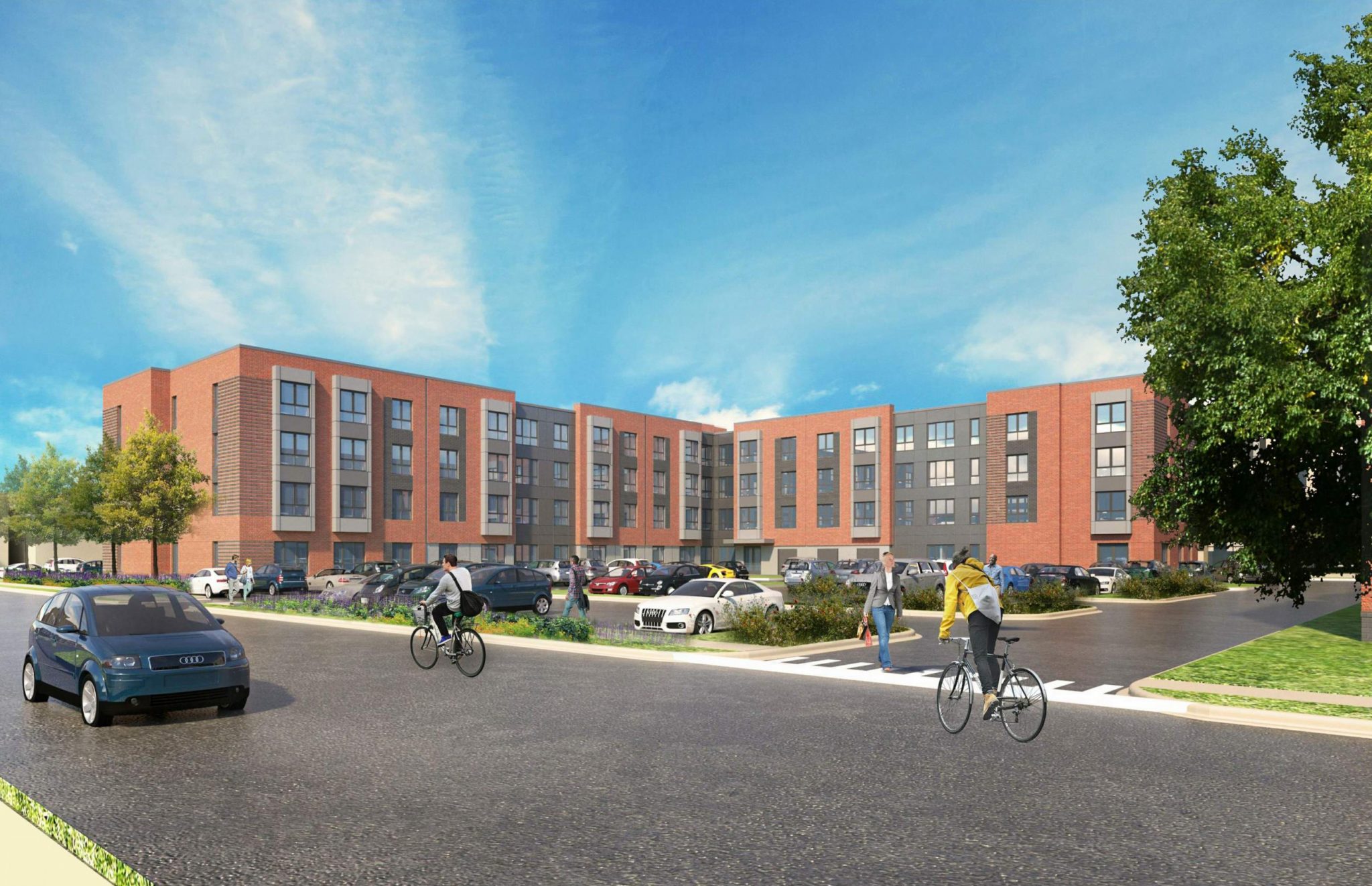Overcome Affordable Housing Hurdles with McHugh’s Cost-Effective Delivery Methods
McHugh Construction’s deep dive into cost-effective delivery methods for affordable housing
The need for affordable housing in both urban and suburban areas remains an unmet challenge. With the onset of the COVID-19 pandemic and its impact to the job market and the economy, the fundamental requirement for communities to provide affordable housing for underserved residents has to be prioritized. Too often, affordable housing does not live up to its name, and proves to be more costly to deliver than market rate apartment housing. In recognition of these market conditions, McHugh has been using its experience with market rate housing to identify more cost-effective delivery methods for affordable housing developments to make truly affordable multifamily housing a reality. These methods include integrating the design and construction processes with either a full design-build approach or partnering with the design team at the earliest possible stages of the project.
There are five hurdles that have historically made affordable housing difficult to develop:
- Smaller scale. The size of most affordable housing developments means they won’t benefit from the same economies of scale as larger market-rate developments that can spread shared costs more efficiently across the project budget.
- Code requirements. Depending on location, affordable housing developments may often be tied to specific code requirements that are geared toward larger multi-story market rate developments and can burden the project with a hefty price-tag.
- Systems and materials. Affordable housing developments often incorporate elements (façade, HVAC systems, materials, etc.) that are better suited for market-rate projects without considering use of comparable, cost-effective alternatives. By the time these elements are priced in a traditional process, it may be too late to change given approvals by municipalities or reviewing agencies.
- Steep learning curve. Many affordable developments are designed as alternative structures (cold-formed steel framed, precast, wood, etc.), but are executed by team members who that don’t have direct experience with the systems—ultimately impacting the bottom line.
- Scarce funding sources. Due to the demand for these funding sources, affordable housing projects that are relying on these sources for financing will require an extended amount of time delaying the start of the construction and causing escalating costs to further strain the project budget.
“Those challenges aren’t necessarily exclusive to affordable housing, but they do test the development community in general and the ability to finance a deal because of uncertainty. As such, each deal needs to be evaluated neighborhood by neighborhood, location by location, and requires the entire team to work collaboratively to address these obstacles from the earliest stages.”
Dave Bartolai, Vice President at McHugh Construction
This is why McHugh, working in concert with select design and key subcontractor partners, has developed a delivery model for affordable housing that is:
- Holistic. Addresses every potential concern or pitfall, while embracing broad parameters and forward-thinking concepts for design, implementation, and long-term use, as well as ROI.
- Adaptable. Offers a flexible kit-of-parts approach to common challenges, and a reliable knowledge-base to support as-needed modification and “fit” adjustments for assorted sites and factors.
- Transparent. Uncovers unique opportunities for design enhancement, cost-savings, schedule efficiencies, team diversification, plus pros and cons of key decisions made along the way.
- Diverse and inclusive. Provides much-needed housing to underserved communities, and opportunities for local service providers, contractors, and trades to work on the projects, too.
- Sustainable and resilient. Integrates flexible and efficient design, systems and construction to protect the building from extreme weather, adapt to climate change and provide space for community events and social gatherings.
- Ability to lock in costs at early stages. With long lead times on financing it is important to have a partner that can lock in costs at early stages so that funding sources can be secured.
One of the main benefits of the McHugh approach is it saves money over a traditional design-bid-build project. This approach delivers cost-effective value by relying on thorough investigation of construction methods and system alternatives, as well as associated design impacts and life-cycle costs from the very start. Another advantage to the methodology is the ability to deliver the project faster from inception to completion. Our approach remains schedule-focused by leveraging a streamlined approach to design, contract, permitting, award of subcontracts and construction from the earliest stages, avoiding redundant decision-making. Finally, it alleviates stress by offering the client a single point of responsibility for coordination and deliverables which allows them to focus on outcomes rather than moderating between design and construction teams.
“The quality expectations of affordable housing have been increasing over the last several years. “Affordable housing, on a quality level, is really now almost indistinguishable from market rate products.”
Steve Wiley, Senior Vice President at McHugh Construction
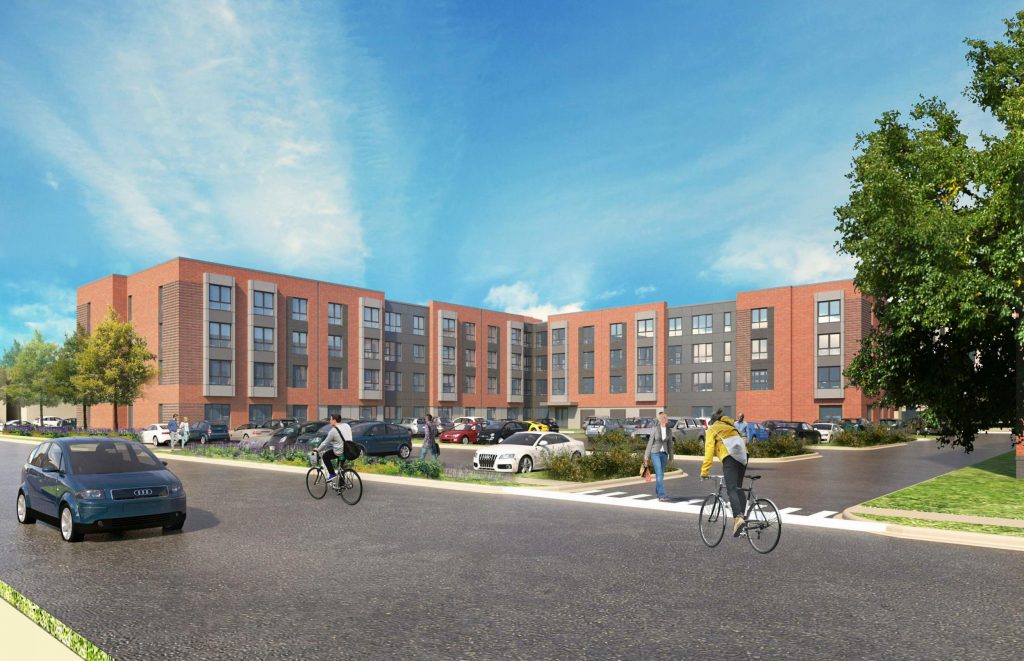
Ogden Commons Residential Building 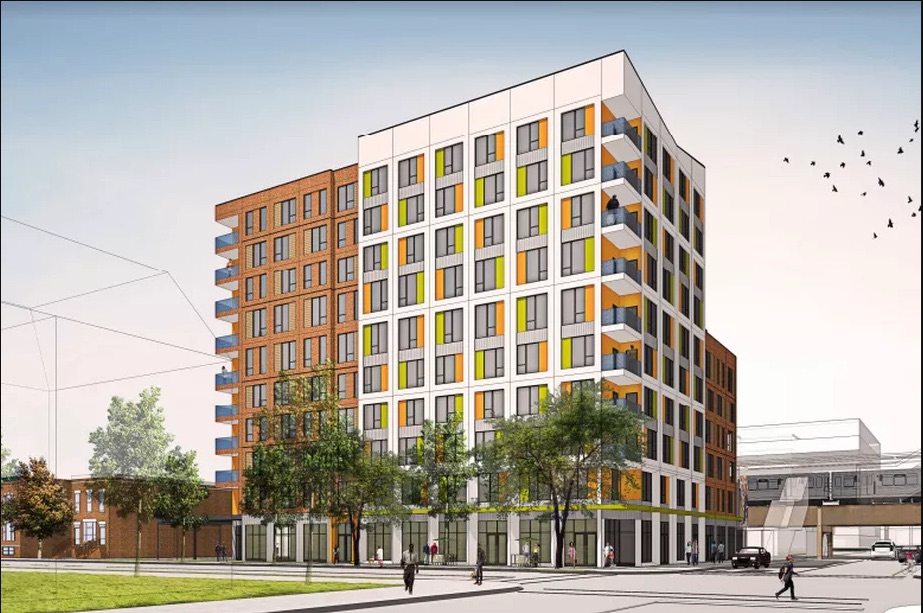
43 Green 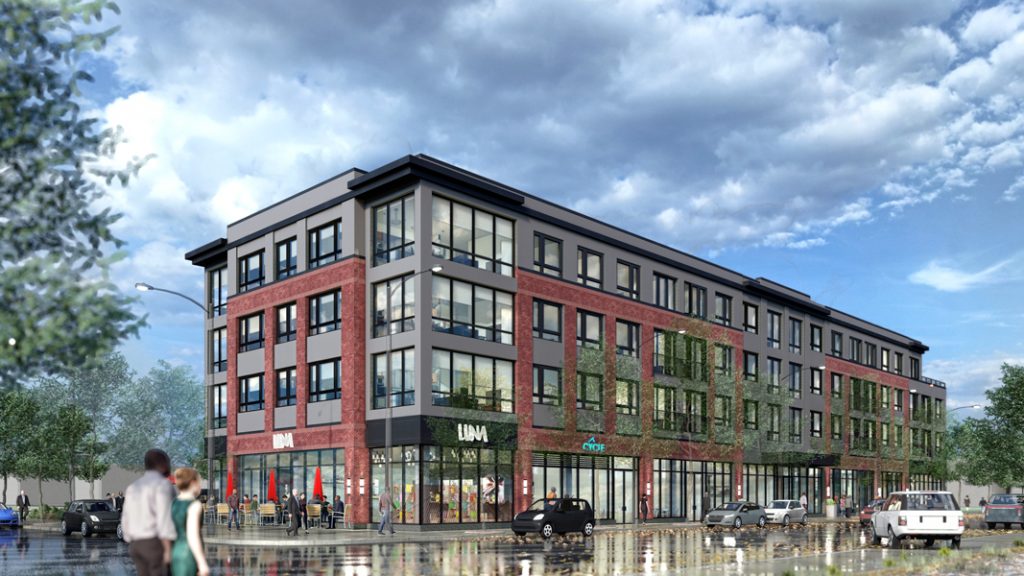
508 Pershing 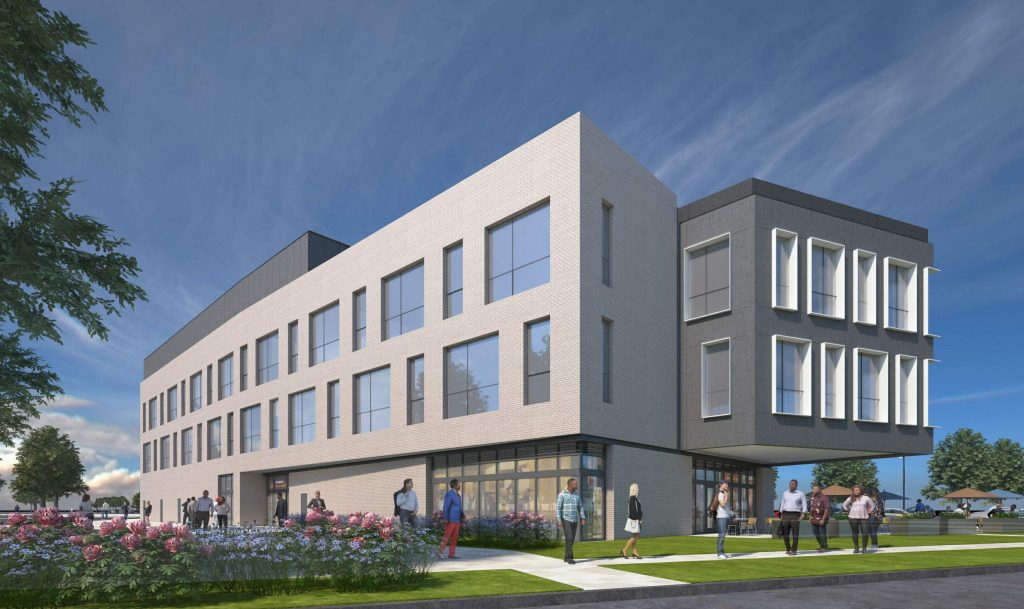
Ogden Commons Commercial Medical Office Building
One project that McHugh is working on is the $200 million Ogden Commons which, upon completion, will deliver 120,000 square feet of commercial and retail space, as well as more than 350 mixed-income housing units to Chicago’s North Lawndale neighborhood. McHugh is building the development on behalf of a public-private partnership between The Habitat Company, Sinai Health System, Cinespace Chicago Film Studios, the Chicago Housing Authority and the City of Chicago.
McHugh Construction just wrapped on the first phase of the project, a commercial medical office building, and McHugh is working with the development team to plan the first phase of residential construction which will hopefully begin later this year.
McHugh also working on 43 Green, a $100 million TOD project in the Bronzeville neighborhood. The first phase will add 99 rental units and 6,000 square feet of retail space to formerly vacant land at the corner of 43rd Street and Calumet Avenue. The Habitat Company and P3 Markets are joint venturing this development scheduled to start later in 2021.
McHugh is partnering with Bowa Construction for the contracting work on both the Ogden Commons and 43 Green developments and working with Brown & Momen, Inc. on a 53 unit project for The Community Builders in the Oakwood Shores Community in Bronzeville at 508 East Pershing Road.
“That’s absolutely critical to the success of these projects,” Wiley said. “All of these projects that we’re working on are joint venture partnerships, which is so important to addressing the concerns of community inclusion.”
These ongoing projects incorporate wood, structural cold-formed metal framing (CFMF) and concrete structural systems for both commercial and retail uses to create vibrant mixed-use affordable housing buildings. McHugh’s involvement with the design teams on these specific projects resulted achieving our client’s specific needs and the demands of the site.
To learn more about the McHugh Affordable Housing initiatives and our strategic teaming relationships, please contact:
John Sheridan
Executive Vice President
T: +1 312 821 0342
E: jsheridan@mchugh.com
Dave Bartolai
Vice President at McHugh Construction
T: +1 312 821 0371
E: dbartolai@mchugh.com


